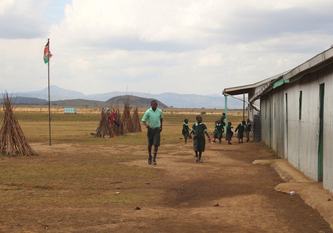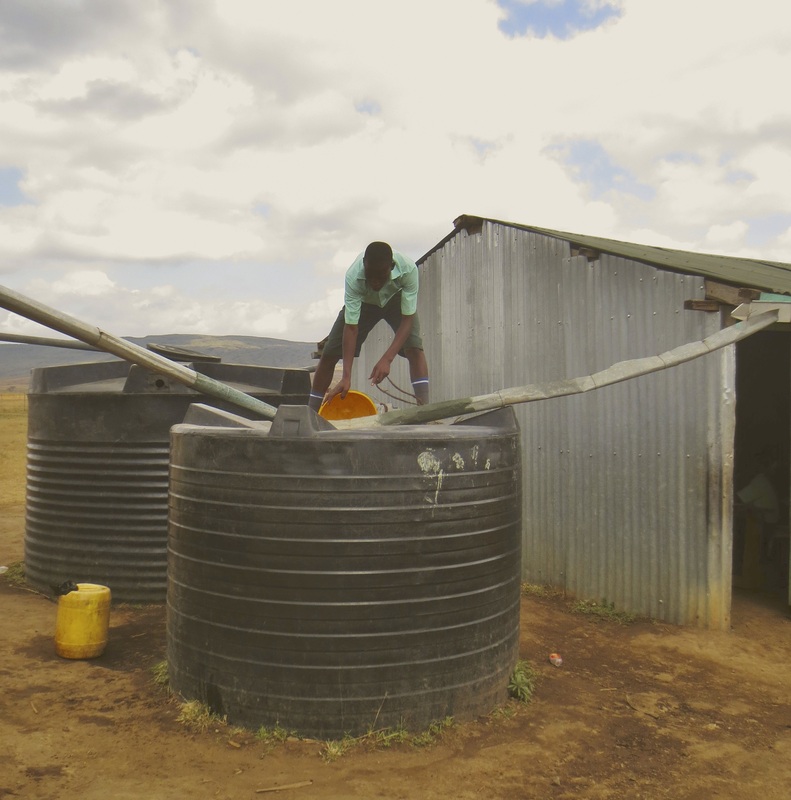
I arrived in Nairobi late Sunday night during the horrific terrorist attacks at the Westgate Shopping Centre. This wasn’t how I expected my arrival in Nairobi to be. Then again I knew going into this that my internship would be different than I imagined. This was my first trip to Kenya and to Africa, yet rather than hiding in a hotel room or hightailing it back to the airport as my mother wanted, I spent my first day in the Great Rift Valley getting a glimpse of the challenges of rural education. I came to Kenya to go into the field with Kristine Pearson, Lifeline Energy’s CEO and her friend and Maasai community leader, Agnes Turanta.
For my internship with Lifeline Energy, I will spend the next seven weeks in Lusaka examining the gap between those with information and energy and those without. I will also look at how access to information and energy impact education and what radio access means to a student or a teacher.
Today was only day one and if it any indication of what’s to come, then I’m thrilled. The Oltanki Primary School has seven teachers for 267 students in Grades 1 through 6, including pre-school. There is no electricity or running water and the student’s uniforms are in tatters. Despite the dirt floors and bare wooden benches the bright smiles and warm welcomes were encouraging.
Florence Kamiau, the head of the school, explained to us how many obstacles these young students have to overcome. The children walk an average of four kilometers each way, often arriving tired, but always ready to learn. The students and teachers work hard despite having so little. They solved their own problem of drinking water by harvesting rain from the rooftop drainage pipes.
Opened in 2009, Oltanki ranks 4th in a district of 20 schools. The only schools that ranked higher have electricity and running water.
With the Prime radio that Lifeline Energy provided to Oltanki today, the school will have access to news and information. The teachers and students will be able to listen to interesting programmes in their local language, Maa; national broadcasts in Swahili; or the BBC or China International Radio broadcasts in English.
Today has been a whirlwind as I witnessed my first glimpse of limited access to energy and information in Africa. There are so many facets and layers to energy poverty, and I hope to explore each one further.
My friends have asked me what I expect to learn from this trip and from what I have seen from my first day, I have great expectations about what I will discover.
For my internship with Lifeline Energy, I will spend the next seven weeks in Lusaka examining the gap between those with information and energy and those without. I will also look at how access to information and energy impact education and what radio access means to a student or a teacher.
Today was only day one and if it any indication of what’s to come, then I’m thrilled. The Oltanki Primary School has seven teachers for 267 students in Grades 1 through 6, including pre-school. There is no electricity or running water and the student’s uniforms are in tatters. Despite the dirt floors and bare wooden benches the bright smiles and warm welcomes were encouraging.
Florence Kamiau, the head of the school, explained to us how many obstacles these young students have to overcome. The children walk an average of four kilometers each way, often arriving tired, but always ready to learn. The students and teachers work hard despite having so little. They solved their own problem of drinking water by harvesting rain from the rooftop drainage pipes.
Opened in 2009, Oltanki ranks 4th in a district of 20 schools. The only schools that ranked higher have electricity and running water.
With the Prime radio that Lifeline Energy provided to Oltanki today, the school will have access to news and information. The teachers and students will be able to listen to interesting programmes in their local language, Maa; national broadcasts in Swahili; or the BBC or China International Radio broadcasts in English.
Today has been a whirlwind as I witnessed my first glimpse of limited access to energy and information in Africa. There are so many facets and layers to energy poverty, and I hope to explore each one further.
My friends have asked me what I expect to learn from this trip and from what I have seen from my first day, I have great expectations about what I will discover.

 RSS Feed
RSS Feed